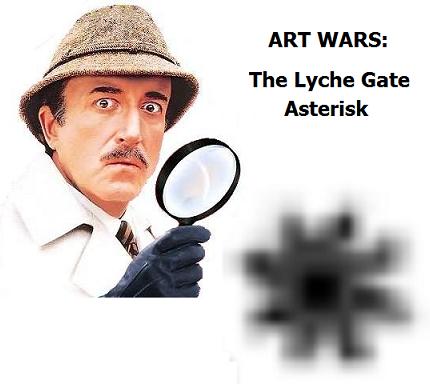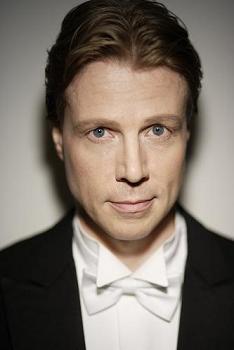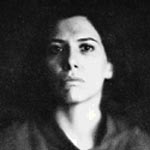“… motifs that look like Monet on acid. This particular mode
of expression has been in Lyche’s repertoire ever since she
graduated from the art academy in 2004.”
Monet-related entertainment —

Wrap that rascal!
“… motifs that look like Monet on acid. This particular mode
of expression has been in Lyche’s repertoire ever since she
graduated from the art academy in 2004.”
Monet-related entertainment —

Wrap that rascal!
“Nine is a very powerful Nordic number.”
— Katherine Neville, The Magic Circle
See also Arcade Fire in this journal.
Katherine Neville, author of The Eight —
"Nine is a very powerful Nordic number."
in The Magic Circle , Ballantine paperback, 1999, p. 339.
A Bon Jovi "Stripped" video released May 1, 2007 —

Synchronology check —
This journal in the early morning of the above release date —
"Nine is a very |
||||||||||||||
“Nine is a very powerful Nordic number.“
— Katherine Neville, author of The Eight
"Arnheim was a particularly important source
for Norway's principal architectural theorist,
Christian Norberg-Schulz."
— Andrew Peter Steen, University of Queensland
doctoral thesis, 2015
See
"Nine is a very powerful Nordic number."
— Katherine Neville, The Magic Circle
The reference in the previous post's image to "Starbird No. 2,"
the single on the flip side of Manfred Mann's 1976 version of
"Blinded by the Light," suggests a review —
A professor named Starbird —
From the above YouTube date,
a bird of a different color —
See The Nordic Journal of Aesthetics ,
Vol. 23, No. 42 (2012), pp. 14-31,
"Art in an Expanded Field: Wittgenstein and Aesthetics,"
by Noël Carroll.
Abstract:
"This article reviews the various ways in which the later writings
of Ludwig Wittgenstein have been employed to address the question
'What is Art?' These include the family resemblance model, the
cluster concept model and the form of life model. The article defends
a version of the form of life approach. Also, addressed the charge that
it would have been more profitable had aestheticians explored what
Wittgenstein actually said about art instead of trying to extrapolate from
his writings an approach to what Nigel Warburton calls the art question."
Click to enlarge.
See also Apollo in this journal.
“Nine is a very powerful Nordic number.”
— Katherine Neville, who deserves some sort of prize for literature.

— Heidegger, “Hölderlin and the Essence of Poetry,”
translated by Douglas Scott, in Existence and Being ,
Regnery, 1949
"Hitchcock made movies with many actresses
who had the aloof, Nordic beauty he admired."
— Alessandra Stanley in today's NY Times
Aloof, Nordic…
Freeze Frame

Related material:
(Mathematics and Narrative, continued)
| "My dad has a great expression," Steve Sabol told USA TODAY Sports last year. "He always says, 'Tell me a fact, and I'll learn. Tell me the truth, and I believe. But tell me a story, and it will live in my heart forever.' " |
Fact—
Truth—
An art gallery in Oslo is exhibiting a tesseract.
Story—
The Jewel of Odin's Treasure Room
* I.e., Wednesday. For some apt Nordic spirit,
see Odin's Day 2012 Trailer.
The LA Times on last weekend's film "Thor"—
"… the film… attempts to bridge director Kenneth Branagh's high-minded Shakespearean intentions with Marvel Entertainment's bottom-line-oriented need to crank out entertainment product."
Those averse to Nordic religion may contemplate a different approach to entertainment (such as Taymor's recent approach to Spider-Man).
A high-minded— if not Shakespearean— non-Nordic approach to groups acting—
"What was wrong? I had taken almost four semesters of algebra in college. I had read every page of Herstein, tried every exercise. Somehow, a message had been lost on me. Groups act . The elements of a group do not have to just sit there, abstract and implacable; they can do things, they can 'produce changes.' In particular, groups arise naturally as the symmetries of a set with structure. And if a group is given abstractly, such as the fundamental group of a simplical complex or a presentation in terms of generators and relators, then it might be a good idea to find something for the group to act on, such as the universal covering space or a graph."
— Thomas W. Tucker, review of Lyndon's Groups and Geometry in The American Mathematical Monthly , Vol. 94, No. 4 (April 1987), pp. 392-394
"Groups act "… For some examples, see
Related entertainment—
High-minded— Many Dimensions—

Not so high-minded— The Cosmic Cube—

One way of blending high and low—
The high-minded Charles Williams tells a story
in his novel Many Dimensions about a cosmically
significant cube inscribed with the Tetragrammaton—
the name, in Hebrew, of God.
The following figure can be interpreted as
the Hebrew letter Aleph inscribed in a 3×3 square—
The above illustration is from undated software by Ed Pegg Jr.
For mathematical background, see a 1985 note, "Visualizing GL(2,p)."
For entertainment purposes, that note can be generalized from square to cube
(as Pegg does with his "GL(3,3)" software button).
For the Nordic-averse, some background on the Hebrew connection—
"Mathematics is forever."
— Gian-Carlo Rota
"Nine is a very powerful
Nordic number."
— Katherine Neville
"Nine tailors make a man."
— Dorothy Sayers
Today's New York Times—
|
"…there were fresh questions about whether the intelligence overhaul that created the post of national intelligence director was fatally flawed, and whether Mr. Obama would move gradually to further weaken the authorities granted to the director and give additional power to individual spy agencies like the . Mr. Blair and each of his predecessors have lamented openly that the intelligence director does not have enough power to deliver the intended shock therapy to America’s byzantine spying apparatus." |
Catch-22 in Doonesbury today—

From Log24 on Jan. 5, 2010—
Artifice of Eternity—
A Medal
In memory of Byzantine scholar Ihor Sevcenko,
who died at 87 on St. Stephen's Day, 2009–
Thie above image results from a Byzantine
meditation based on a detail in the previous post—

"This might be a good time to
call it a day." –Today's Doonesbury
"TOMORROW ALWAYS BELONGS TO US"
Title of an exhibition by young Nordic artists
in Sweden during the summer of 2008.
The exhibition included, notably, Josefine Lyche.
A Google search for "Das Scheinen," a very rough translation into Heidegger's German of "The Shining," leads to a song. A search for the English version of the song leads to a site with a sidebar advertising Pearl Jam's new (Sept. 20) album "Backspacer."
Happy birthday,
Stephen King.
Background:
Yesterday's entries
and the plot of
L'Engle's classic
A Wrinkle in Time.
(See this journal's entries
for March 2008.)
The Pearl Jam album cover art
is of particular interest in light
of King's story "Apt Pupil" and
of Katherine Neville's remark
"Nine is a very powerful
Nordic number."
Those who prefer more sophisticated
aesthetic theory may click on the
following keys:
| Nordic Truth: | Jewish Fiction: |
| Snowball | In Hell |
| From The New York Times in 2005:
 “HE’S the hottest conductor you’ve never heard of…. In music, as in most other pursuits, one person’s misfortune can be another’s opportunity. Many a podium career has been built on successful substitutions…. typically, the process is cumulative and measured. In Mr. Remmereit’s case, it seems a sort of spontaneous combustion…. he seems destined for big things, and soon. Regarding his sudden change in stature, he spoke as if from afar. ‘The snowball has reached such a size that it has started to roll,’ he said matter-of-factly…. ‘It’s terrifying when it happens,’ he said, ‘but I can’t tell you how naively happy I am when it goes well. These are such major steps that I wasn’t even hoping for a few weeks ago.’ ARILD REMMEREIT (pronounced AHR-eeld REMM-uh-right, with the r’s heavily rolled) was born in a village in Norway, between Bergen and Trondheim, and has lived in Vienna since 1987. Slim and fresh-faced at 43, he has had a busy but low-level career in Europe…. So here he was, on April 15, conducting the Pittsburgh Symphony… in a vintage… Germanic program…. Wagner’s ‘Siegfried Idyll,’ Schumann’s Fourth Symphony and Brahms’s Second Piano Concerto….” Württemberg Philharmonic February 2004 Arild Remmereit as a guest conductor: ‘As when the sun rises in the North.’ The Philharmonics and their brilliant guest conductor fetched the mind-blowing, tempting and exciting Scandinavia. It was like a lucky strike to see the Norwegian conductor on stage with the Philharmonic. When he conducts the Dane Nielsen, the Finn Sibelius and the Norwegian Grieg, one can really feel that this man has the locally marked music floating in his blood.” |
From The New York Times today: Discussion of
a new novel: 
Variations on An interview with Henry Grinberg conducted by James R. Oestreich: “For those who find inspiration and edification in great art, it is always painful to be reminded that artists are not necessarily admirable as people and that art is powerless in the face of great evil. That truth was baldly evident in Nazi Germany and in the way the regime used and abused music and musicians, to say nothing of the way it used and abused human beings of all kinds. [A new novel touches on] these issues…. In Variations on the Beast (Dragon Press), Henry Grinberg, a psychoanalyst, posits Hermann Kapp-Dortmunder, a powerful maestro, as a fictional rival of Wilhelm Furtwängler (whose qualms about working under the regime he does not share) and Herbert von Karajan (whose vaulting ambition he does).” GRINBERG: “And it soon occurred to me… that, my God, a lot of the famous, the notable, the moving, the magnificent composers in the 18th and 19th centuries and earlier were Germans. And I tried to understand, how did such a nation turn out to be so bestial and cruel, so indifferent to the suffering of others? And I have no explanation for it. As a practicing psychoanalyst, I can see individual expressions of rage and their causes and their so-called justifications. But for a whole nation to be consumed, to be seduced by an overwhelming idea– well, there are rationalizations, I guess, but not explanations. There’s no forgiveness for this. And I tried to put together a story of a person who was a participant and a causer of these kinds of things…. So I sort of poured my feelings of contempt and rage into the character I was devising. And I have to admit, after having been psychoanalyzed myself in preparation for the training, that something of Hermann Kapp-Dortmunder exists in me. I shudder to think that this may be so, but I have to accept the possibility. Murderous thoughts may have occurred to me, but, thank God, I’ve never killed anyone.” |
…da ist der Tanz;
Doch weder Stillstand noch Bewegung.
Und nenne es nicht Beständigkeit,
Wo Vergangenheit und Zukunft sich sammeln.
|
|
|
| to put one's back into something |
bei etwas Einsatz zeigen |
| to up the ante |
den Einsatz erhöhen |
| to debrief | den Einsatz nachher besprechen |
| to be on duty |
im Einsatz sein |
| mil.to be in action | im Einsatz sein |
| to play for high stakes |
mit hohem Einsatz spielen |
"Nine is a very
powerful Nordic number."
— Katherine Neville,
The Magic Circle
Hour of the Wolf
Today is Schicksalstag, the “day of fate” in German history.
This entry’s time slot, 3:00 AM ET– which some say is the beginning of “the hour of the wolf*”– was reserved earlier for some entry appropriate to the day. (Actual time of this entry: about 12:48 PM ET).
| Markus Wolf, East German Spymaster, Dies at 83 By THE ASSOCIATED PRESS Published: Thursday, Nov. 9, 2006 Filed at 11:16 a.m. ET BERLIN (AP) — Markus Wolf, the ”man without a face” who outwitted the West as communist East Germany’s long-serving spymaster, died Thursday [Nov. 9, 2006]. He was 83. Wolf died in his apartment in Berlin, his stepdaughter Claudia Wall said in a statement. The cause of his death, on the 17th anniversary of the fall of the Berlin Wall, was not released. |
| Game Boy
Click on picture for details.
“Nine is a very
powerful Nordic number.” — Katherine Neville
|
||||||||||||||
* “Wolf” — See the etymological notes
in The Shining of May 29.
The Pope in
Plato's Cave
Those who find the Pope's recent remarks (see the previous entry) on a Byzantine emperor lacking in literary depth may consult the writings of William Butler Yeats on Byzantium quoted in Log24 entries of February 14-16, 2003. Those entries also refer to a modern version of Plato's cave– the movie theater– and the film "The Recruit." See also a more recent Log24 discussion of that film:
This supplies a different illustration
of the previous entry's conclusion:
"Nine is a very powerful
Nordic number."
Pandora's Box
Part I:
The Pandora Cross
— Rosalind Krauss in "Grids"

Part II:
The Opening
Remarks by the Pope on Sept. 12,
as reported by the Vatican:
Faith, Reason, and the University:
Memories and Reflections
For the result of
the Pope's remarks, see
a transcript of
yesterday's Google News
and the following
from BBC today:

Click to enlarge the screenshot.
Part III:
Hope
"In September [2005], she had a private audience with Pope Benedict XVI at Castel Gandolfo, his summer residence outside Rome. She had criticized John Paul II for making overtures to Muslims, and for not condemning terrorism heartily enough, but she has hopes for Joseph Ratzinger."
For further details, see yesterday's Log24.
Part IV:
The Sibyl's Song
— From The Magic Circle,
a spiritual narrative
by Katherine Neville
For more on "the long-mute voice
of the past," on "darkness beneath
the volcano," and on uncorking,
see Glory Season and Harrowing.
Related material from
Log24 on Dec. 2, 2005:
Benedict XVI, before he became Pope:

and a related
Christian symbol,

the Greek Cross
(adapted from
Ad Reinhardt).
Moral of the Pandora Cross:
"Nine is a very powerful Nordic number."
— Katherine Neville in The Magic Circle…
quoted in The Nine, a Log24 entry
for Hermann Weyl's birthday,
November 9, 2004.
|
|
|
| to put one's back into something |
bei etwas Einsatz zeigen |
| to up the ante |
den Einsatz erhöhen |
| to debrief | den Einsatz nachher besprechen |
| to be on duty |
im Einsatz sein |
| mil.to be in action | im Einsatz sein |
| to play for high stakes |
mit hohem Einsatz spielen |
Score:
"His music had of course come from Russian folk sources and from Rimsky-Korsakov and from other predecessors, in the way that all radical art has roots. But to be a true modernist, a cosmopolitan in the twentieth century, it was necessary to seem to disdain nationalism, to be perpetually, heroically novel– the more aloof, the better. 'Cold and transparent, like an "extra dry" champagne, which gives no sensation of sweetness, and does not enervate, like other varieties of that drink, but burns,' Stravinsky said about his own Octet, Piano Concerto, and Piano Sonata. The description might be applied to works by Picasso or Duchamp."
— Michael Kimmelman in
The New York Review of Books,
issue dated Aug. 10, 2006
Perhaps.
But the description
certainly applies to
Bridget Moynahan:

"… like an 'extra dry' champagne,
which gives no sensation of
sweetness, and does not enervate."
For more on the
"Ice 9" figure, see
Balanchine's Birthday.
ART WARS
continued from
previous entry
In memory of
Elisabeth Schwarzkopf:
This question might
well be posed by…

Rosalind Krauss,
Meyer Schapiro Professor
of Modern Art and Theory
at Columbia University
(Ph.D., Harvard U., 1969).
"The grid is a staircase to the Universal….
We could think about Ad Reinhardt, who,
despite his repeated insistence that
'Art is art,'
ended up by painting a series of…
nine-square grids in which the motif
that inescapably emerges is
a Greek cross.

Adapted from
Ad Reinhardt
There is no painter in the West
who can be unaware of
the symbolic power
of the cruciform shape and the
Pandora's box of spiritual reference
that is opened once one uses it."
— Rosalind Krauss in "Grids"
"Nine is a very powerful Nordic number."
— Katherine Neville, author of The Eight
Related material:
"Nine is a very powerful Nordic number."
— Katherine Neville, author of The Eight,

"To live is to defend a form."
("Leben, das heisst eine Form verteidigen")
— attributed to Hölderlin
In defense of the nine-square grid:

For details on the above picture, see
Translation Plane.
The Nine
(Readings for
Weyl’s birthday)
“The grid is a staircase to the Universal….
We could think about Ad Reinhardt, who,
despite his repeated insistence that
‘Art is art,’
ended up by painting a series of…
nine-square grids in which the motif
that inescapably emerges is
a Greek cross.

Greek Cross
There is no painter in the West
who can be unaware of
the symbolic power
of the cruciform shape and the
Pandora’s box of spiritual reference
that is opened once one uses it.”
— Rosalind Krauss,
Meyer Schapiro Professor
of Modern Art and Theory
at Columbia University
(Ph.D., Harvard U., 1969),
in “Grids”

“Nine is a very powerful Nordic number.”
— Katherine Neville, author of The Eight,

in The Magic Circle,
Ballantine paperback,
1999, p. 339

“To live is to defend a form.”
(“Leben, das heisst eine Form verteidigen“)
— attributed to Hölderlin

For details on the above picture,
which deals with properties of the
nine-square grid, see
For more on the defense
of this form,

see the Log24.net entry of
June 5, 2004, A Form,
and the Art Wars entries
for St. Peter’s Day, 2004.
Powered by WordPress